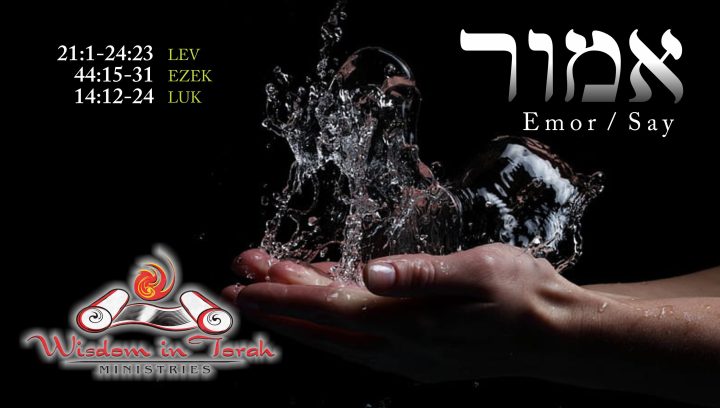
Don't Forget to Share!
This Parashah covers the Feasts of YHWH.
This page includes Torah Portions from multiple years covered by Wisdom in Torah. Each year we covered the Torah from a different perspective so you can explore each Parashah from a different perspective and focus.
- 2010 Portions: Focus on Messianic connections in the Parashah
- ANET Portions: Focus on the ancient Near Eastern cultural context of the Parashah
- Mitzvot Portions: Focus on explaining and exploring the commandments found in the Parashah (in progress)
- 2015 Portions: Revisiting the Parashah looking at the ancient cultural context more in depth with additional areas that have been researched
- Brit Portions: Focus on connecting the Brit Hadashah (New Testament) to the Parashah
Oops, this is members-only content
This page requires at least a basic level membership to access the teaching.
Audio
Oops, this is members-only content
Resources
The following is a list of recommended resources for this teaching:
- Emor Portion_The Case of the Blasphemer Leviticus 24 Power Point PDF
- lev24_10-23a Resource Article
Categories
29 thoughts on “Torah Portion Emor Complete”
Leave a Comment
You must be logged in to post a comment.

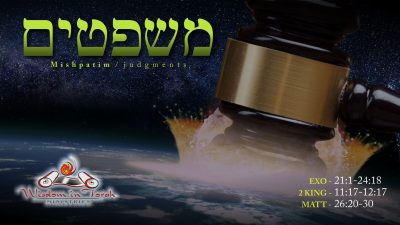
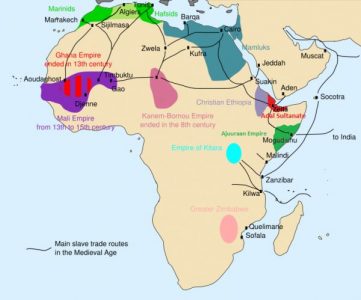
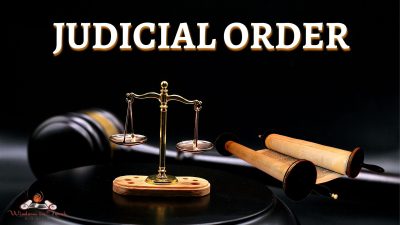
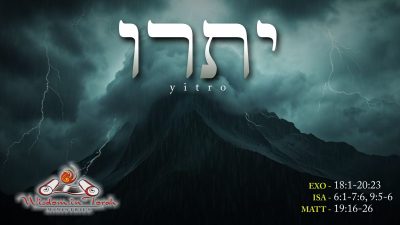
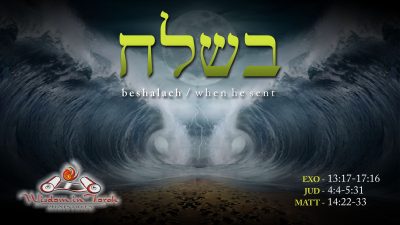
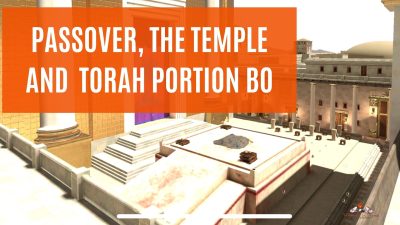
As always I find the teachings of Torah uplifting. You present it with a zeal and completness. Thank-you. May the Lord bless you. Shalome
Rick
good teaching rico and very good comments guys Praise YAH
strongs #988 Blasphemia= Switches right for wrong, wrong for right, calls what God disapproves “right” which exchanges the truth of God for a lie (Ro 1:25)
987=blasphe’mmeo’= refusing to acknowledge good, reverses moral values, speaking profanity of sacred things be spoken of as evil.
Amos 5: 26-27 Acts 7:51 You men are stiff-necked, uncircumcised in hearts and ears are always resisting the Holy Spirit; you are doing just as your fathers did. v:42 He turned them away and gave them over to the worship of heavenly bodies. So calling christmas holy, easter holy, sunday holy is blasphemy against the Ruach sins that wont be forgiven? (hmmm….food for thought) Yes, we can repent, but what is blashpeming the holy Spirit, not recieving His Feast days and commandments and call what is wrong right? Calling what God has made good bad, and make what is wrong holy?
Thank you Teresa for making the notes on Rico’s teachings. They are very helpful to me.
Nunca hubiera atado a Tamar con Melquisedek. . .!!!!
Pero habriste una caja de Pandora para mi:
Como puede Melquisedek “Sacerdote de Salem sin genealogias a quien Abraham entrega los diezmos del botin” (figura de Yeshua) procrear una hija?
Estoy convencida de que los Patriarcas conocian los principios de Torah y celebraban los Moadim, por ello es que si creo que sea posible que Tamar sea hija de un sacerdote, pero me gustaria encontrar mas evidencia con respecto a Melquisedek.
Muchas gracias por una entrega mas de amor y verdad desde el fondo de tu corazon, oro porque Yah te devuelva en vigor, tiempo y comunion lo que tu viertes en nosotros. Eres muy amado y apreciado por nosotros los hambrientos y sedientos sin congregacion para crecer en nuestra fe en Meshiaj.
Perdon por la falta de acentos. . .no encuentro la tecla.
Shalom everyone. Here are my notes for Rico’s teaching. If there are any mistakes, I apologize. They are here to help you find your place if you remember something but were not sure where it was he said it. They are not complete word for word, just skimming along to what he is saying to give you a place to go back to if you like. Thank you Rico.
Part 1
Emor
Vayikra – Leviticus
@2mts How important it is about how you treat your neighbor. There are laws that apply to only the Cohanim and laws that are just for men and laws that are just for women.
Lev 21:1-3 ESV
(1) And the LORD said to Moses, “Speak to the priests, the sons of Aaron, and say to them: No one shall make himself unclean for the dead among his people,
(2) except for his closest relatives, his mother, his father, his son, his daughter, his brother,
(3) or his virgin sister (who is near to him because she has had no husband; for her he may make himself unclean).
@5mts What is Holiness? Torah teaches us. These are YHVH standards of holiness.
@10mts Lev21:10
Aaron was specifically told not to rent his garments at the death of his sons. This was part of prophecy.
John19:23-24
The priesthood of Yeshua is still intact because His garments were not divided.
Math26:65 Caiaphas tore his robes, disqualifying himself as the priest for that day’s events.
@14mts This chapter is directed to the sons of Aaron.
Ephesians refers to men covering themselves like a woman would with veils. Men covering their heads is biblical.
@15:44mts Israel conducted herself as an adulterous bride.
Ezek23: talks about the two daughters of one woman… Talking about Israel, a divided house.
How can Yeshua take us back? He gave a bill of divorce. By His death and then resurrection as a new man, He took the penalty of death and redeemed His bride.
He returns for a bride dressed in white linen – how do you make the linen white – through Torah. Torah also circumcises the heart. Without Torah you cannot walk in His commandments.
@19:38mts They are told not to marry prostitutes or defiled women. Books of Ezra and Nehemiah talk about this too.
A blemished priest may not come to the Holy Place…
@21 The priests were to be perfect because they were a type and shadow of Yeshua. We know that He was perfect.
@24 It was not about extreme requirements, it was about type and shadow.
@25 Lev 22 What they should do in the house of the King. Not to serve if unclean.
@28:29 similar verses in Ezek44:5-23
Sorry for not getting to emails, gets many!
@34:24mts Offerings, vows, free will, unblemished
@37mts God spoke to Moses saying a youngling was to stay with its mother for 7 days before being offered…
Do not profane My name … I am the one who took you out of Egypt.
@40mts Why does He keep repeating things over and over – it’s because we are in covenant. He wants to teach us.
Hosea- Animals were being brought that were not acceptable for sacrifice. The priests were not doing their job. Hos1:11 ‘pure offerings’… the table is defiled, bringing stolen, lame and sick offerings.
Chapter 2 talks about the robbing of God. The prosperity message is robbing God too and making wealth for themselves while not teaching you the Word of God, they are not teaching Torah!
@43 They are not taking care of the widows or orphans, they’re stealing you from God as well, because they are not teaching you His ways!
Deut28: …if you diligently obey the word of your Lord your God…. Blessed will you be …
If you OBEY and if you WALK in HIS Commandments!
Remember, don’t come empty handed, help someone. Be discerning, be led in righteousness.
Part 2
YHVH appointed feasts, Holy convocations; These are MY feasts –
@1:26mts Our God is great.
Vs1-2 These are designated as Holy Convocations.
Leaven represents sin and pride. Honey was not allowed to be brought to the altar. In ancient practices of the gods, honey was brought to them to appease them.
High Shabbats are different from weekly Shabbats. High Shabbats allows for preparing your meals.
@5:07 Counting of the Omer. It varies for some on when to start the counting.
@7:38 Why do you count 50 days? You are counting towards your freedom! The Jubilee.
Vs17 From your dwelling place you shall bring bread… Barley for Passover and Wheat for Shavuot/Pentecost. The book of Ruth shows the timeframe to be Shavuot.
@10mts Do not harvest your whole field, leave the corners. The book of Ruth shows that Boaz left his corners un-harvested. Ruth was picking from the corners. Sometimes we read things in the bible and don’t see the connections. We are being taught.
The book of Ruth is very prophetic “Book of Ruth, Midrash Rabbah“ (sp?)
Ruth 1:22
Whoops Barley for Pentecost/Shavuot –
Ruth 2:
She gleaned after the reapers; they followed the correct Torah protocol. It helps us to make connections. The foreigners and strangers could eat from the land; they DID have an inheritance with Israel.
Ruth went to glean from Boaz; other people glean from people in the Hebrew Roots Movement. Glean from the people who know, who are providing the corners of the harvest to others.
@17:26 Feast of Trumpets. Day of Atonement – repentance is a part of the affliction of yourself.
@18:42 Sukkot 7 day period for YHVH.
High Shabbats. 7 of them not including the weekly Shabbats.
Vs35 Holy convocation, you shall do no work… 70 bulls (represents the nations of the world).
@20:20mts The rabbi’s interpreted this to mean they were to determine when the festivals were to be held. This year the sighting of the moon coincided for when the Rabbi’s determined the Holy Day.
The feasts teach us the plan of redemption. The 7th day Sabbath teaches how it will be in the millennial reign.
How 7 plays a part in God’s plan. 120, 50…
An explanation of the Holy days and what they mean in His plan.
@24:31 Just like Isaac took Rebekah into the tent, that is how Yeshua will bring us into His tents.
Customs of Sukkot – a Mikvah
@26:37 circling the platform with the Torah…. A celebration of rejoicing the Torah.
Some traditions do teach us how to appreciate what the Word means.
@28:10
Vs. 40 This was a huge business in Europe because of the Jewish population with respect to Citron, what is used for celebrations. People take advantage of these Holy days and charge more….
OK, This is where Rico vents…. He has issues, please pray for him….
@30:48 vs. 41 You shall celebrate it, dwell in booths …
(Shemot – 7 types of presses for olive oil) See Rico’s previous teaching.
40 years before the destruction of the temple, the center, the most western one, of the Menorah went out every night. This was supposed to be a sign.
The three levels of the believer…
@34:16 vs. 5 Take fine flower and bake it into loaves… The mystery here was that every week the loaves would be removed from the previous week and still be found as fresh as when they were first placed there!
Vs. 8 …. It shall belong to Aaron and his sons….
It’s not wrong to say His name, it’s wrong to blaspheme or to swear by it falsely or in vain.
@38 Vs. 17
@39mts Lev23:39 Tells you how to put the branches, the Lulav together. What in the world does that mean?!!
From commentary; There is many symbols to be found in the Lulav. Unity is one. Etrog /Citron resemble the heart. The Lulov or palm branch resembles the spine. The Hadasim or Myrtle represents the eyes, and the Aravot (or hoshanot); willow branches are representative of the lips.
All together they are called the Lulov.
Etrog or Citron HEART – Has both good taste and a good smell and symbolizes those who both study the Torah and accumulate good deeds.
Lulav or Palm branches SPINE – Has fruit dates that have good taste but no smell and symbolizes those who study the Torah but do not accumulate good deeds.
Hadass or Myrtle EYE – This has a good smell but no taste and symbolizes those that have good deeds but do not study the Torah.
Aravah or Willow MOUTH – Has neither taste or smell, this group has neither good deeds nor studies the Torah.
These are the 4 types of Israelites, everyone is different. No one is better than the other, we come together during the feast and honor and worship the Creator as one!
Doing the Lulov is more than just picking up the branches to wave them. Through the physical He teaches us the spiritual.
When the Feast comes we come together as One people.
YHVH bless you and keep you!
Thank you for tying together the different books of the Tanach with the Torah – especially Leviticus. It has been such a great learning experience!
AWESOME TEACHING!!!! THANK YOU RICO for teaching me more and more every week! I have to admit, when I first started watching you, I didn’t quite get everything you were teaching us. But as I’ve studied over time, I’m understanding more and more. I praise YHWH
Shalom Rico and blessings to you and yours —
A couple of things I’d like to contribute to today’s discussion:
In regards to the grapes and yeast: Grapes have a naturally occurring yeast on their skin, that is how the wine ferments. You can see it on the grapes even today. It is that whitish, sometimes sticky coating on the outside of the grapes. So we can see how our rabbinic brethren in their hyper-caution to keep the Torah would apply this law to the grapes as well as the grain.
In regards to the counting of the omer, my teaching on it is here: http://kolhamashiach.org/omer_count.html
If you don’t have an hour to spend with me :'( LOL — Here’s the “story in a nutshell” here:
The keys are in the Septuagint, written 200 BCE by the priests and rabbis of the time; and the Targums which pre-date the Masoretic texts by 1000 years say this:
“After the first festal day of Pascha (or, the day after the feast‑day of Pascha) on the day on which you elevate the sheaf, you shall make (the sacrifice of a lamb of the year, unblemished a burnt offering unto the Name of the Lord: and its mincha, two tenths of flour, mingled with olive oil, for an oblation to the Name of the Lord, to be received with acceptance; and its libation, wine of grapes, the fourth of a hin. But neither bread nor parched corn (of the ripe harvest) nor new ears may you eat until this day, until the time of your bringing the oblation of your God: an everlasting statute unto your generations in all your dwellings
And number to you after the first feast day of Pascha, from the day when you brought the sheaf for the elevation, seven weeks; complete they shall be. Until the day after the seventh week you shall number fifty days, and shall offer a mincha of the new bread unto the Name of the Lord. From the place of your dwellings you are to bring the bread for the elevation; two cakes of two‑tenths of flour, which must be baked with leaven, as first fruits unto the Name of the Lord. And with that bread you are to offer seven lambs of the year, unblemished, and a young bullock without mixture (of colour), the one for a sin offering, and two lambs of the year for a sanctified oblation. And you shall make (a sacrifice) of a young goat without mixture, the one for a sin offering and two lambs of the year for a sanctified oblation. And the priest shall uplift them with the bread of the first fruits, an elevation before the Lord, with the two lambs; they shall be holy to the Name of the Lord, and shall be for the priest. And you shall proclaim with life and strength that self‑same day, that at the time of that day there shall be to you a holy convocation: you shall do no work of labour: it is an everlasting statute in all your dwelling for your generations.”
So this is how the contemporaries of Y’shua observed the omer count and the timing of Shavuot.
As for Y’shua and His example to us, the biggest key is in Luke 6:1 in the King James Version. Y’shua and the disciples eat new grain on the “Shabbat after the first (or chief which is opening sabbath of the week of unleavened bread). If the wave offering was yet to be offered on Yom Rishon, He would have sinned. We both know that He can’t / won’t do that.
On another note, we all know that the Roman church altered the times and the seasons. Easter, complete with sunrise service, was once the feast of Ishtar the goddess of the dawn; and 50 days later on the sunday was the feast of the goddess Flora. MY personal belief is that YHVH would not time His mo’edim with the dates of the pagan feasts. Of course, He can do WHATEVER seems good to Him … He doesn’t need my permission. ;D
Know that I love you as a sister would her brother; know that I have the utmost respect for you and the work that you do and for the tremendous amount of knowledge you have from the study you do. This is just my contribution of what I have learned. May it be a blessing for you and yours.
Much love! –Yocheved
Shalom
Great explanation and thanks for helping me understand this better. I look forward to the conference in winter. Shalom
Rico
Yocheved….Who says YHVH used the dates the pagan did? Could it not be vice versa, satan alwasys copies!!! Tina
Hi Mr.Cortes,
My name is Christine. I have a question about this weeks Torah portion. In Lev. 21:1-4, it says that the priest may go and bury his mother, father, etc… But why doesn’t it say that he may bury his wife? Cause you said in the video that may not go to a burial if it is a uncle or cousin. Are these that God said only a few major examples or are they the only ones that he may bury?
Well thanks for your time and effort to teach us new things!
Shalom,
Christine van Deventer (Gerhard van Deventer’s daughter)
shabbat shalom brother
Shalom Rico,
May HaShem open His floodgates of blessing upon Ya-all in this new month.
Chodesh Tov. (Good month) I do not have the words to express to Ya-all how much Ya-all have impacted and enriched our lives by your LOVE for OUR ABBA!!!!!!!
Thank Ya-all for all you do!
Shalom
Jose & Maria Jorkin, Fellow Bond servants to Yeshua, Ha Mashiach